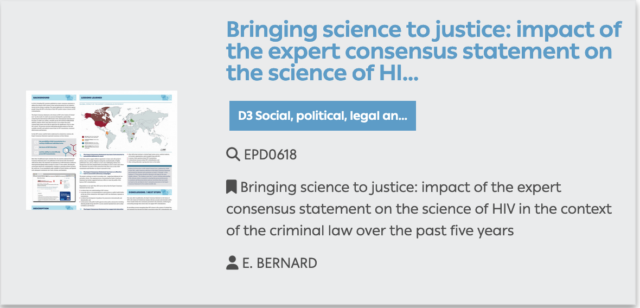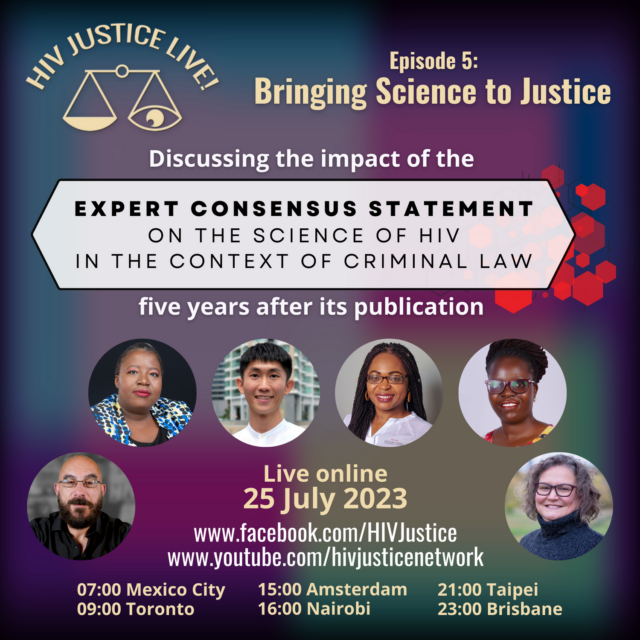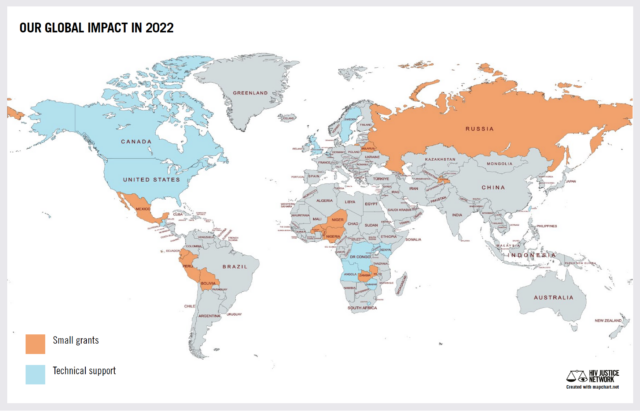Today, on International Migrants Day, the HIV Justice Network is thrilled to announce the relaunch of The Global Database on HIV-specific Travel and Residence Restrictions (HIVtravel.org) under a new name: Positive Destinations (www.positivedestinations.info). This rebranding reflects a bold vision for the future — empowering people living with HIV through accessible information, advocacy, and resources to promote freedom of movement and challenge stigma worldwide.
Positive Destinations represents hope, progress, and the belief that every journey should be free of archaic barriers and unjust discrimination. This enhanced platform provides up-to-date, accurate information on restrictions affecting people living with HIV who want to travel, relocate or migrate, and serves as a vital advocacy portal to push for the removal of discriminatory laws, policies and practices.
“This rebrand to Positive Destinations reflects our commitment to a world where people living with HIV, in all our diversities, can enjoy our human rights and live in dignity, without fear of unjust criminalisation, regulation or control,” said HIV Justice Network’s Executive Director, Edwin J Bernard. “With this platform, we aim to amplify the voices of those most affected and build a movement that challenges and changes unjust, unscientific policies. Travel or relocation for love, work, family or pleasure should be available to everyone, regardless of HIV status, and we are dedicated to ensuring that every destination is a truly positive destination for all.”
Why the change?
HIVtravel.org has been a trusted resource for more than two decades. The name Positive Destinations better reflects its mission to provide expanded information and tools to promote freedom of movement and uphold human rights, paving the way for a world where people living with HIV can explore, connect, and thrive without prejudice.
- Expanding our vision: Positive Destinations goes beyond providing entry, stay and residence restrictions information to also covering information on access to HIV services for non-nationals.
- Accessible advocacy tools: The platform equips users with news and resources to challenge unjust restrictions.
- Community-focused: It highlights stories of successful advocacy and personal testimonies of lived experience to foster understanding and solidarity.
What’s new on Positive Destinations?
- Redesigned website: A completely redesigned user-friendly interface – optimised for mobile phones – that makes accessing critical travel and treatment access information seamless.
- Latest news: News stories about advocacy or information relating to HIV-related travel or migration curated from reliable sources around the world.
- Advocacy resources: Practical tools for individuals and organisations to advocate for change.
- Links to local organisations: Where available we link to organisations in-country that can help migrants with HIV to access services.
- Global perspectives: Personal stories highlighting the challenges and triumphs of navigating the world as people living with HIV in all our diversities.
Visit the new platform at www.positivedestinations.info.
About the HIV Justice Network
The HIV Justice Network (HJN) is the leading community-based NGO building a co-ordinated, effective global response to punitive laws and policies that impact people living with HIV in all our diversities. In 2024, HJN took over the running of the hivtravel.org website, rebranding it as Positive Destinations.
Acknowledgments
This project has been made possible with the provision of a financial grant from Gilead Sciences Europe Ltd.
We acknowledge previous funders and contributors to The Global Database on HIV-specific Travel and Residence Restrictions (hivtravel.org) including Deutsche Aidshilfe, European AIDS Treatment Group (EATG), the International AIDS Society (IAS), Positive Council (Switzerland). We would especially like to thank the original authors David Haerry and Peter Wiessner.


